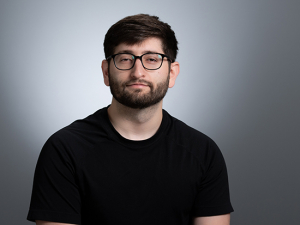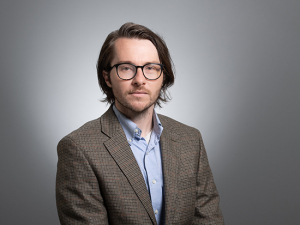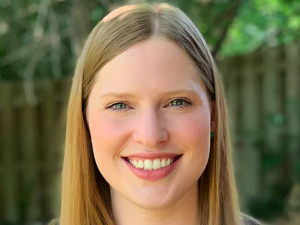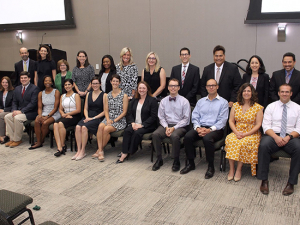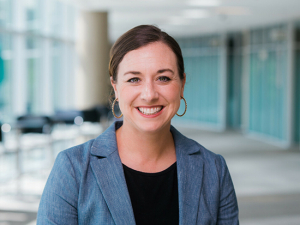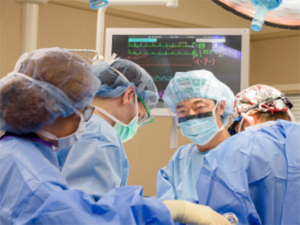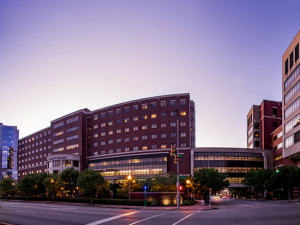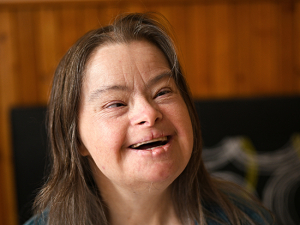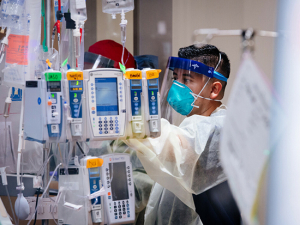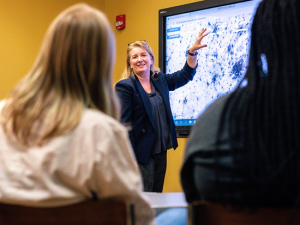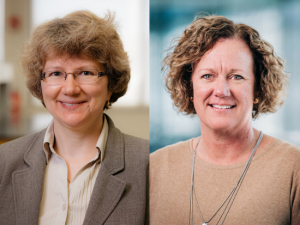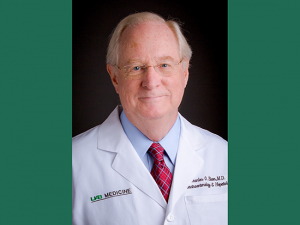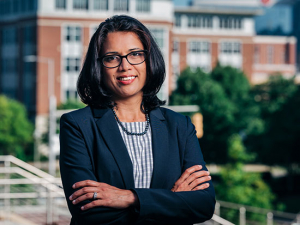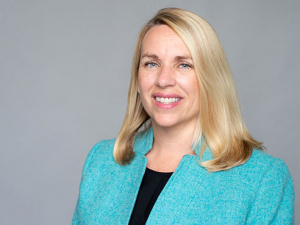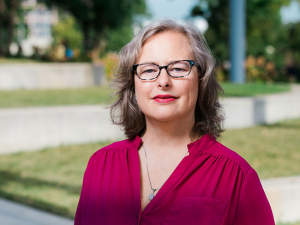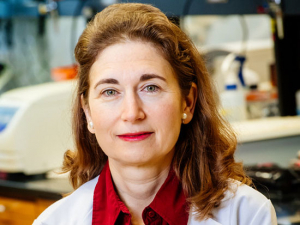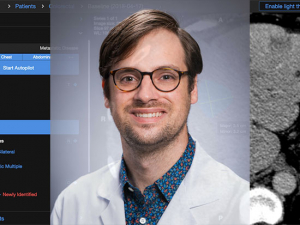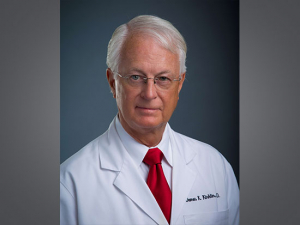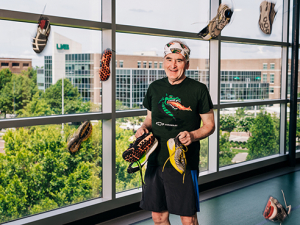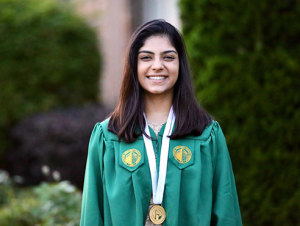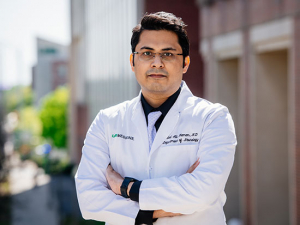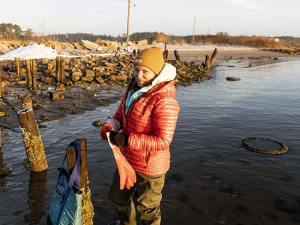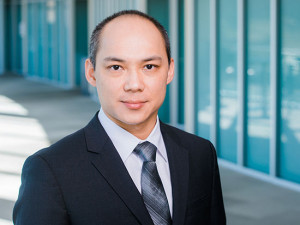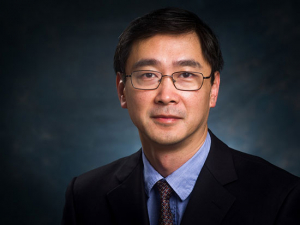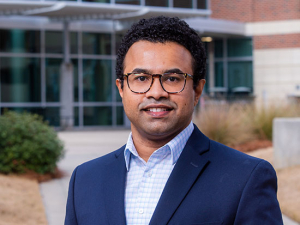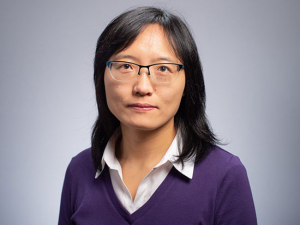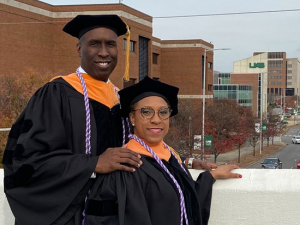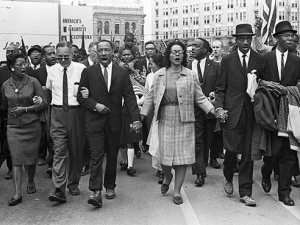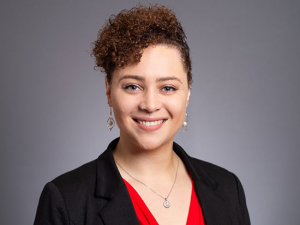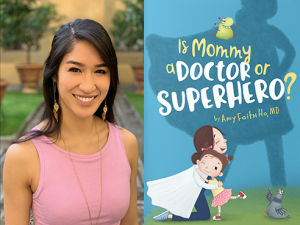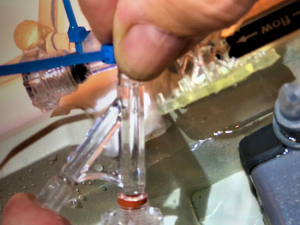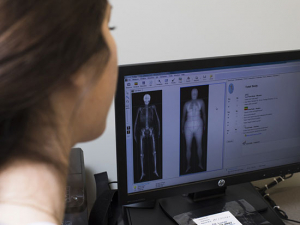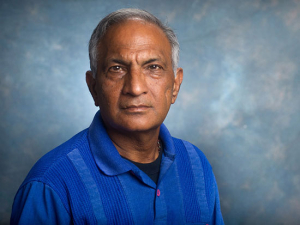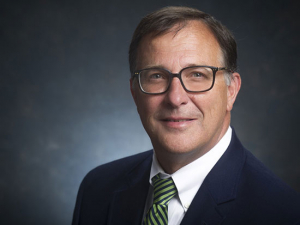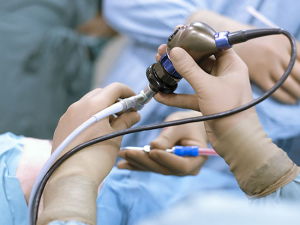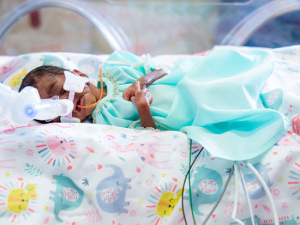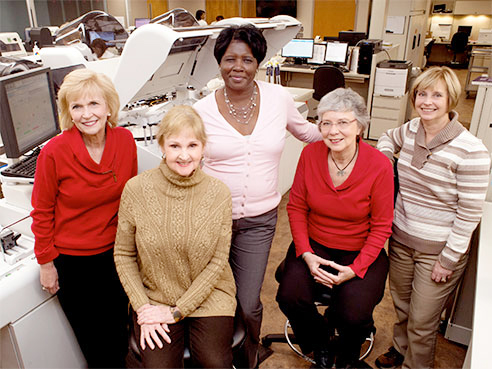 From left: Belinda Hyche, hematology lab supervisor, Carolyn Chaffin, chemistry lab supervisor, Diane Hendricks, specimen receiving lab supervisor, Mary A. “Mac” Crum, automation project manager, and Sheila Gray, evening shift supervisor. Blood sisters
From left: Belinda Hyche, hematology lab supervisor, Carolyn Chaffin, chemistry lab supervisor, Diane Hendricks, specimen receiving lab supervisor, Mary A. “Mac” Crum, automation project manager, and Sheila Gray, evening shift supervisor. Blood sisters
Saving lives on the night shift
The humble hospital lab rarely gets a mention in primetime medical dramas, but if you’re really looking for the action in a major medical center — this is the place.
Every night, while patients sleep, a team led by Sherry Polhill, administrative director of UAB Hospital Labs and Respiratory Care, analyzes thousands of tubes of blood. The results help guide patient care; abnormal findings might require immediate notification to clinicians.
This past year, a $6.8-million automation project completely revamped the lab with advanced technology that will shorten turnaround time for tests. But during construction, the work had to carry on in other lab spaces. “It’s like redesigning a plane while you are flying it,” Polhill said. “The technologists and lab techs have been phenomenal employees working in such complex conditions.”
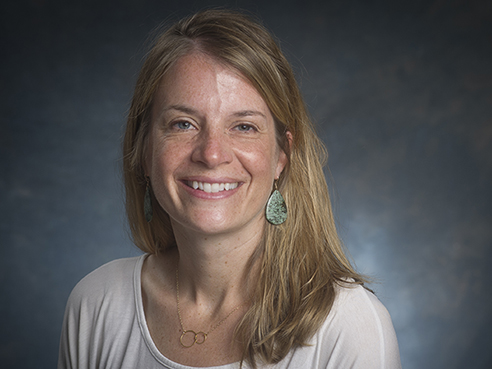 Julie Price, manager for UAB Sustainability Julie Price
Julie Price, manager for UAB Sustainability Julie Price
Locked in on livability
First, then-doctoral student Julie Price wanted UAB to grow things on its roofs to cut cooling bills, which, however odd it sounded at the time, was a scientifically sound response to the effects of heat in this asphalt jungle that surrounds our campus.
From there, she soon became the campus face of sustainability — the idea that we should use and develop natural resources in a way that we do not deplete or damage them. Since 2013 she has acquired an official title — manager for Sustainability — and shepherded a number of projects in which little changes make a big difference.
Price sees UAB as a proving ground for positive messaging and a living lab for green design. She has helped champion changes that reduce waste, increase access to fresh foods, encourage use of bikes and electric cars, promote environmentally friendly construction and research practices and help faculty incorporate sustainability into their curricula.
Equally important, Price has engaged students in her mission to identify ways to improve the livability of our campus and propose and implement solutions. And she is confident the example UAB sets for sustainable practices has the potential to affect the community, state and region.
“What we do well can make a big difference,” she said. “We have the power to institute real change.”
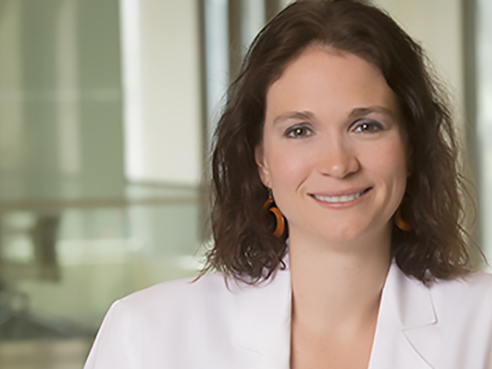 Gabrielle Rocque, director of UAB’s Patient Care Connect ProgramGabrielle Rocque
Gabrielle Rocque, director of UAB’s Patient Care Connect ProgramGabrielle Rocque
Navigating the cancer journey
When she was growing up, Gabrielle Rocque, M.D., watched her physician father move smoothly between an academic appointment and a community practice. As the medical director of UAB’s Patient Care Connect Program, Rocque, assistant professor in the Division of Hematology and Oncology, is taking clinical innovations on the same journey.
Patient Care Connect pairs older cancer patients with trained lay navigators. In regular phone calls, the navigators help patients make sense of their complex treatment plans and point them to helpful resources. During a three-year, federally funded study of the program, Rocque worked with physicians at community cancer center sites across the Southeast, helping them translate data from the navigators into more efficient, effective care. She was the lead author on a study, published in January, which found that emergency room visits, hospitalizations and intensive care unit admissions all declined significantly among navigated patients. Meanwhile, total costs per patient fell by more than $3,100 per year.
“The extra layer of support that navigators provide can make a big difference,” Rocque said. “We have patients who tell us that they never would have made it through their treatment without their navigator.”
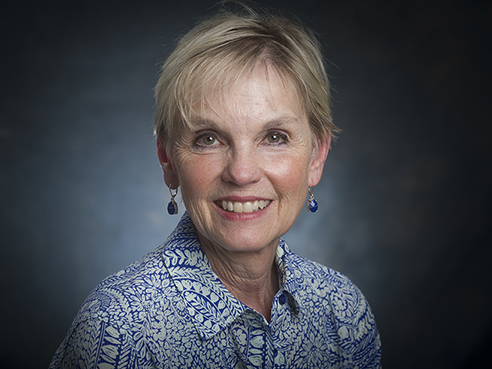 Pamela Sterne King, assistant professor of history Pamela Sterne King
Pamela Sterne King, assistant professor of history Pamela Sterne King
Stepping into history
Confucius once said that, if one wishes to define the future, they must study the past.
Pamela Sterne King seeks to do that daily, both in her classroom and throughout her life in Birmingham.
Before becoming an assistant professor of history in 2006, King worked as the first historic preservationist for the city of Birmingham and also as a private consultant in the field. She was also an adjunct history instructor at UAB from 1984 to 2006. Now, King teaches classes like “Birmingham Mansions, Mines and Jim Crow,” tying in her expertise on downtown Birmingham and the city’s neighborhoods. In her HY 481/681 Public History course, she helps students understand the broader focus of historic events — and then helps them create a piece of it.
This past year, students from the course created and led the Letter from Birmingham Jail tour, which took participants to the seven churches and one synagogue to whom Rev. Martin Luther King Jr. addressed his famous letter.
“The idea was to focus on a topic about Birmingham and create a tour that didn’t exist to give information that the public doesn’t know much about,” King said. “That way, it gets the students out into the community to research the history.”
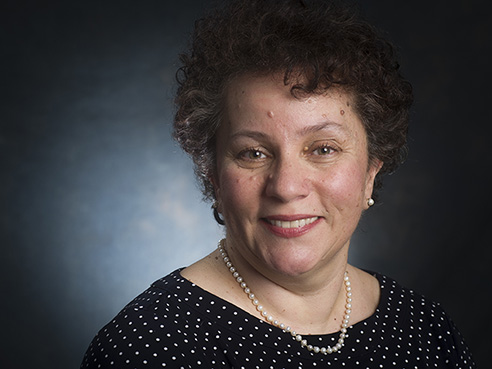 Virginia Sisiopiku, Ph.D., associate professor of transportation engineering and director of the UAB Transportation Engineering and Development Lab Virginia Sisiopiku
Virginia Sisiopiku, Ph.D., associate professor of transportation engineering and director of the UAB Transportation Engineering and Development Lab Virginia Sisiopiku
Kicking out the jams
Everyone likes to complain about traffic. Virginia Sisiopiku, Ph.D., is doing something about it. Sisiopiku, associate professor of transportation engineering in the School of Engineering and director of the UAB Transportation Engineering and Development Lab, is part of a new $14 million study from the U.S. Department of Transportation to develop novel strategies for reducing traffic congestion.
Sisiopiku and her team are using computer modeling and field tests to evaluate new ways of dealing with one of the worst jam-makers: construction zones. They are also studying the effects of new technologies. Will ridesharing apps like Uber lead to a decline in the number of younger drivers? How could data from today’s sensor-packed cars help engineers dynamically manage traffic flow? “We really have to be proactive to prepare for a new era of transportation,” Sisiopiku said. “We have to reevaluate existing theories of traffic flow to reflect the realities of tomorrow.”
In case you missed it, read about Women Who Discover, Women Who Serve, Women Who Lead and Women Who Inspire.
